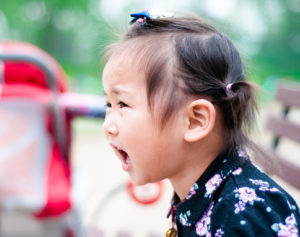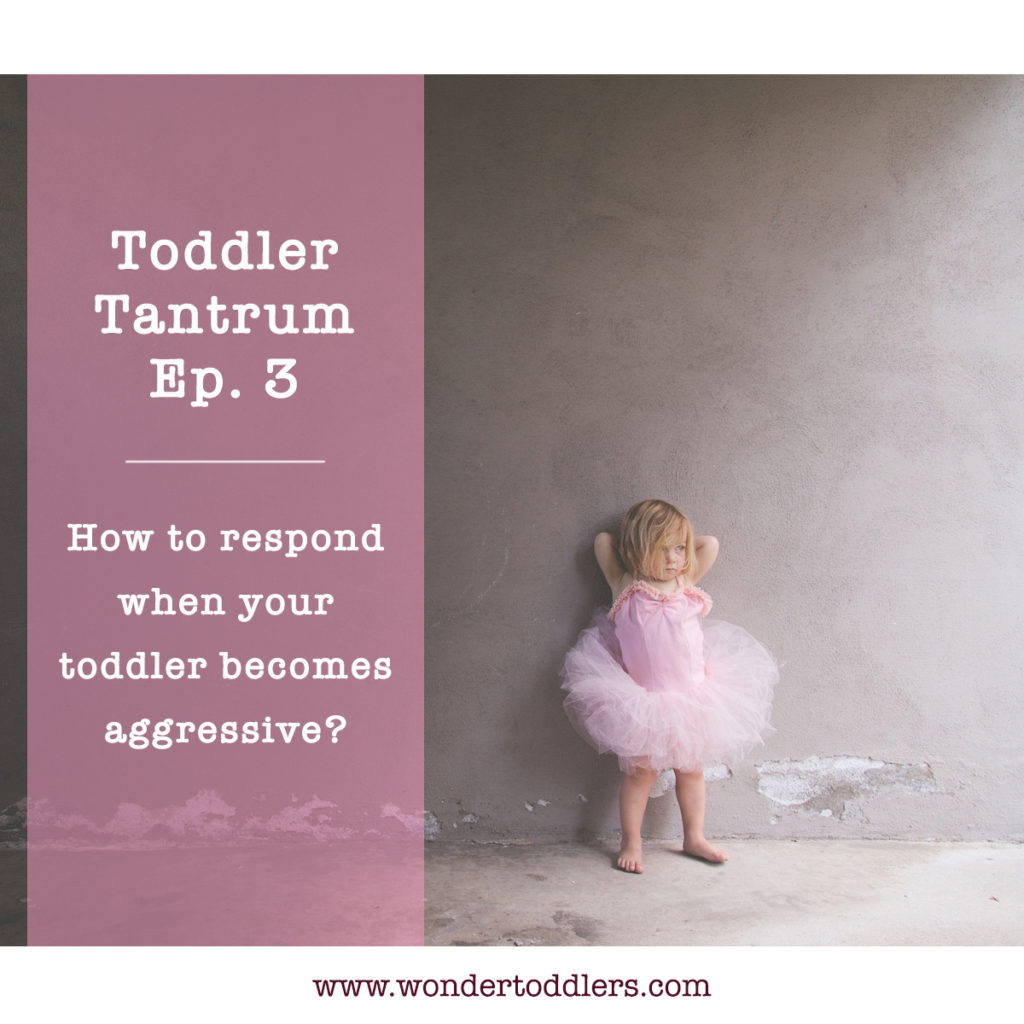Toddler tantrum and aggression
I remember the first time when I had to calm down a toddler who threw a massive tantrum, dropped herself onto the floor and when I wanted to help her up, she started to kick and hit me.
That time, I just started my career as an early years teacher and I was not 100% sure what to do in this type of situation. My colleague didn’t want to interfere and so I was left alone to deal with that aggressive behaviour.
I didn’t do exactly the right thing…I did what I guess most people would do: repeated her name and asked her to stop kicking, hitting and crying. I also wanted to make her sit up properly on a chair or at least on the carpet, so I pulled her up by her arms but she got even more upset and louder.
At one point, I sort of gave up and left her crying on the floor. I felt terrible. I felt sorry for her and I was very disappointed in myself. A few minutes later, she calmed down. We exchanged looks and I knew that finally NOW I can go and talk to her.
She had a few of these tantrums during that year but when she entered pre-school she was like a different child and I haven’t heard any “horror stories” about her afterwards.
The moral of my story? There is a lot of course ; ) but for me, the main lesson on that day was to learn to be patient, remain calm and be more understanding. Even if I am blown away what a 3 years old child can do, I have to remind myself, that they are still unable to express themselves in a way as we do, they are not tiny adults, they are children.
How to respond when your toddlers become aggressive
1. Wait until your child calms down
If you already know that your child doesn’t like to be touched during a tantrum, you better leave him (unless he tries to run away or hurt someone or himself) otherwise you might make him even angrier. Wait until he calms down a bit and then try to give him a hug or hold his hand if you think that would help.
2. Use short and descriptive sentences
If your child does hit, kick or bite, use short and descriptive sentences such as “Hitting hurts.” or “Your friend is crying because you kicked him. Kicking hurts.” When you say these things, try to remain calm and firm.
Tell your child to say sorry if he hurts someone (and you can quickly remind him why he needs to say sorry). Sometimes a simple sorry doesn’t seem to be enough, I personally prefer if someone explains why he says sorry, indicating that he realised what he just did, for example like this: “Sorry for pushing you.” or “Sorry for kicking you, I didn’t mean it.”
Important: Talk to him about what happened on the spot as it helps him to draw the connection between what you say and what he just did. Reminding him what he did after some hours or days is pointless and less effective.
3. Stop their aggression
When your child throws a tantrum and he starts hurting someone or himself, gently remove him from the situation. It is important that you do it as soon as possible as your child can hurt or be hurt in seconds!
4. Look for a quiet place
Take your child to a quiet place to help him calm down quicker and easier. It can be a corner, on a step or carpet or on the floor or on a chair or if you are outside, just make sure that you take him away from the situation. At home, you can create a safe, chilling area with cushions and blankets where your child can be by himself (but still, supervise him, don’t leave him totally alone) and comfort himself.
5. Help your child to use his words
Toddlers are still developing their personal, social, emotional and communication and language skills, so you have to help him to express himself with words and even with actions. When you see that your child is about the explode with emotions, just ask him to use his words.
For example, he is playing with a toy and his peer comes to take that away from him. He doesn’t want to give it to the other child so they start pulling the toy. You can go and say, “Darling, what do you want to say to your friend?” help him express himself if he doesn’t say anything and say, “Tell your friend to wait until you finish playing and you will give it to him later.”
Another example: your child wants to have something but instead of saying it, he starts crying. You can ask him: “Why are you crying?” if he answers you say “I see. You would like to play with the car. Next time, tell me what you want to play with and I will help you get it.”
One of the most important things here is to reassure your child that you do understand why he got frustrated and that you empathise with him.
You want to make sure that he understands that you are here to help him through this and you offer solutions and options. Sometimes by simply listening to your child and nodding your head and saying that you understand his feelings helps a lot.
Also, asking your child to use his words works like magic, every time! It makes him stop for a second because it makes him think. As he is in the process of thinking, he uses his reasoning skills and starts seeing the situation in a different light.
6. Try to keep your cool
What I really learnt that from my previous experiences is that I need to remain calm. It is so so important! If your child gets upset and then you get upset because he got upset… it is a vicious circle and there will be crying at both ends. But if you keep your cool, your problem-solving skill will kick in and you find the solution way more quickly.
Also, if your child sees that you are calm (but firm in some situation) will calm down quicker. Your days will be less stressful and you show a good example of how to react to frustrating situations… so everybody wins!
Remind yourself that your toddler is not hurting himself or others or you because he really wants to cause pain. Most of the time it happens because he doesn’t know what is the right behaviour and how to express himself.
Why do toddlers get aggressive?
 One of the and probably the most common reasons is, that they haven’t fully developed their communication, language and empathy skills yet, and they have less self-control as well. To learn more about the reasons why toddlers get aggressive, please read my other article: Toddler Tantrum Ep 1.: Why toddlers get aggressive?
One of the and probably the most common reasons is, that they haven’t fully developed their communication, language and empathy skills yet, and they have less self-control as well. To learn more about the reasons why toddlers get aggressive, please read my other article: Toddler Tantrum Ep 1.: Why toddlers get aggressive?

Feel free to share this article by pinning, tweeting or posting this image above : )
Join our Community on Social Media to discuss this and any other topic with fellow parents and teachers!
Facebook Twitter Instagram Pinterest YouTube
Share your opinion, help others with your experience and let’s form a good place together.

